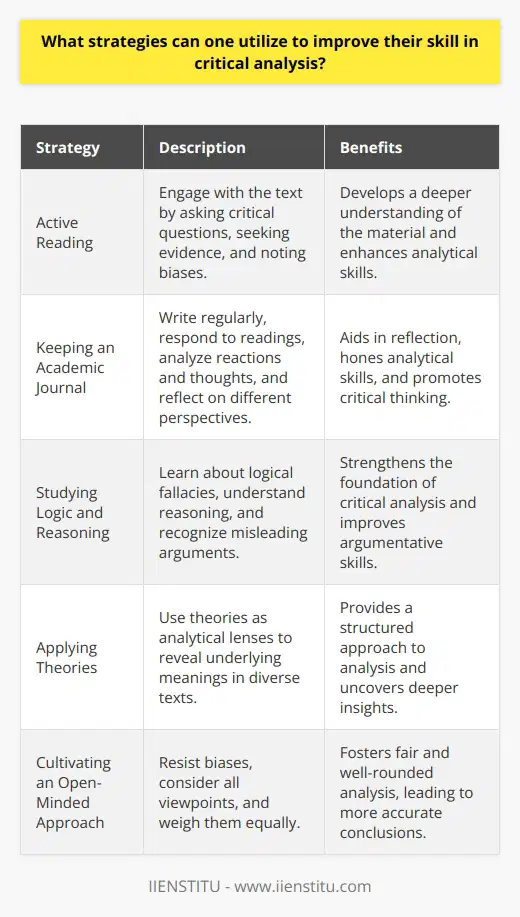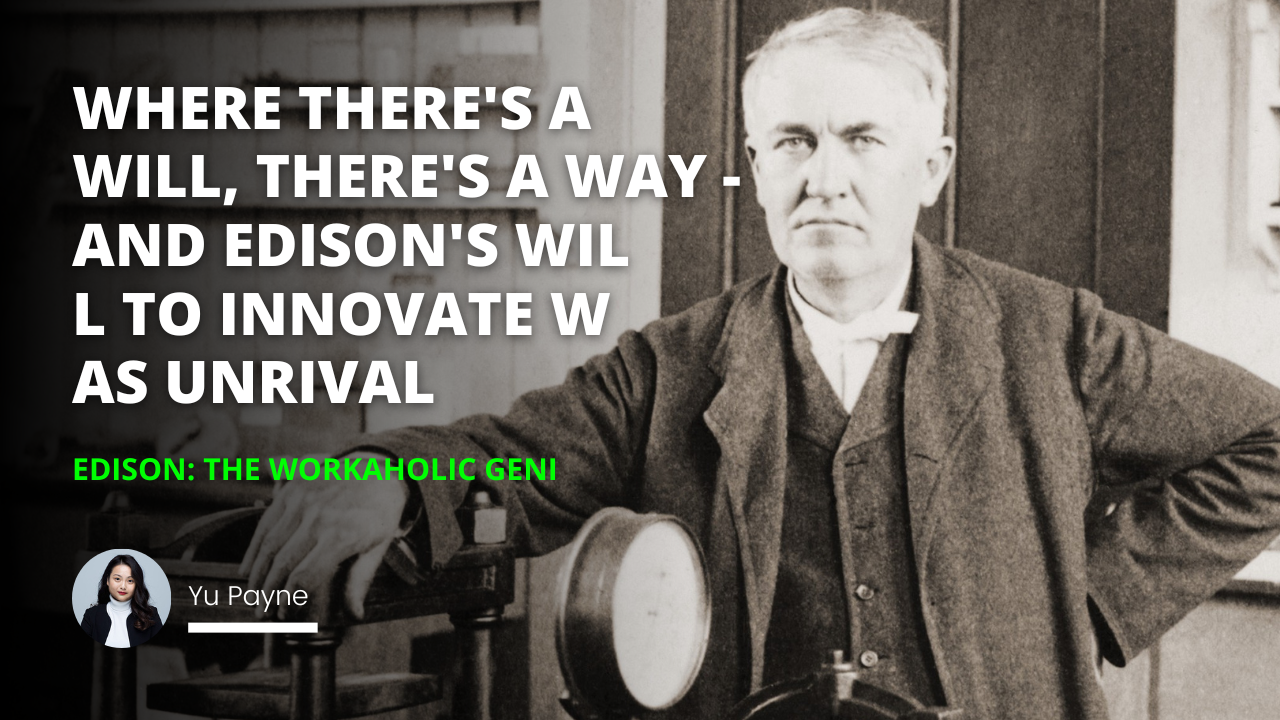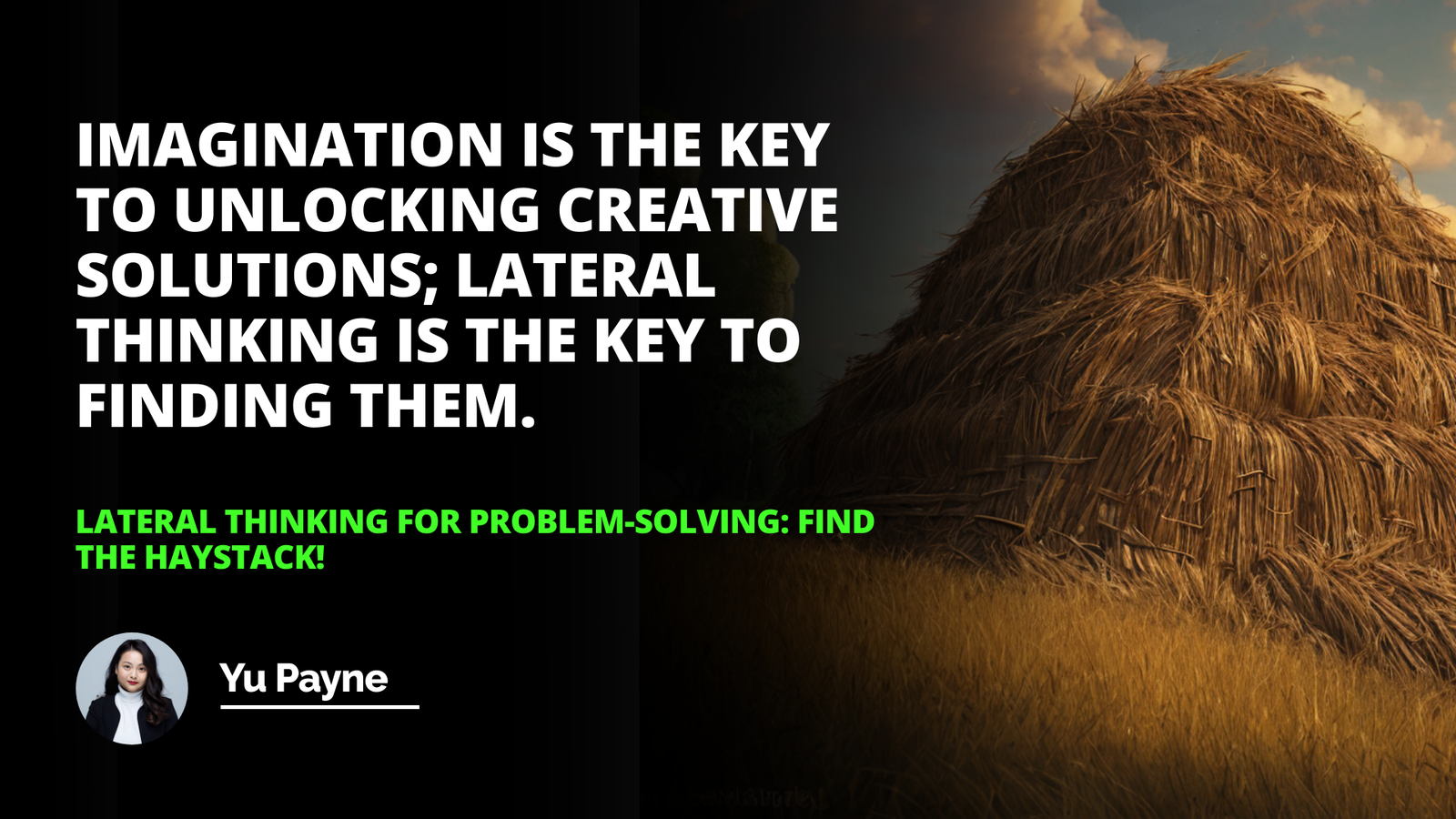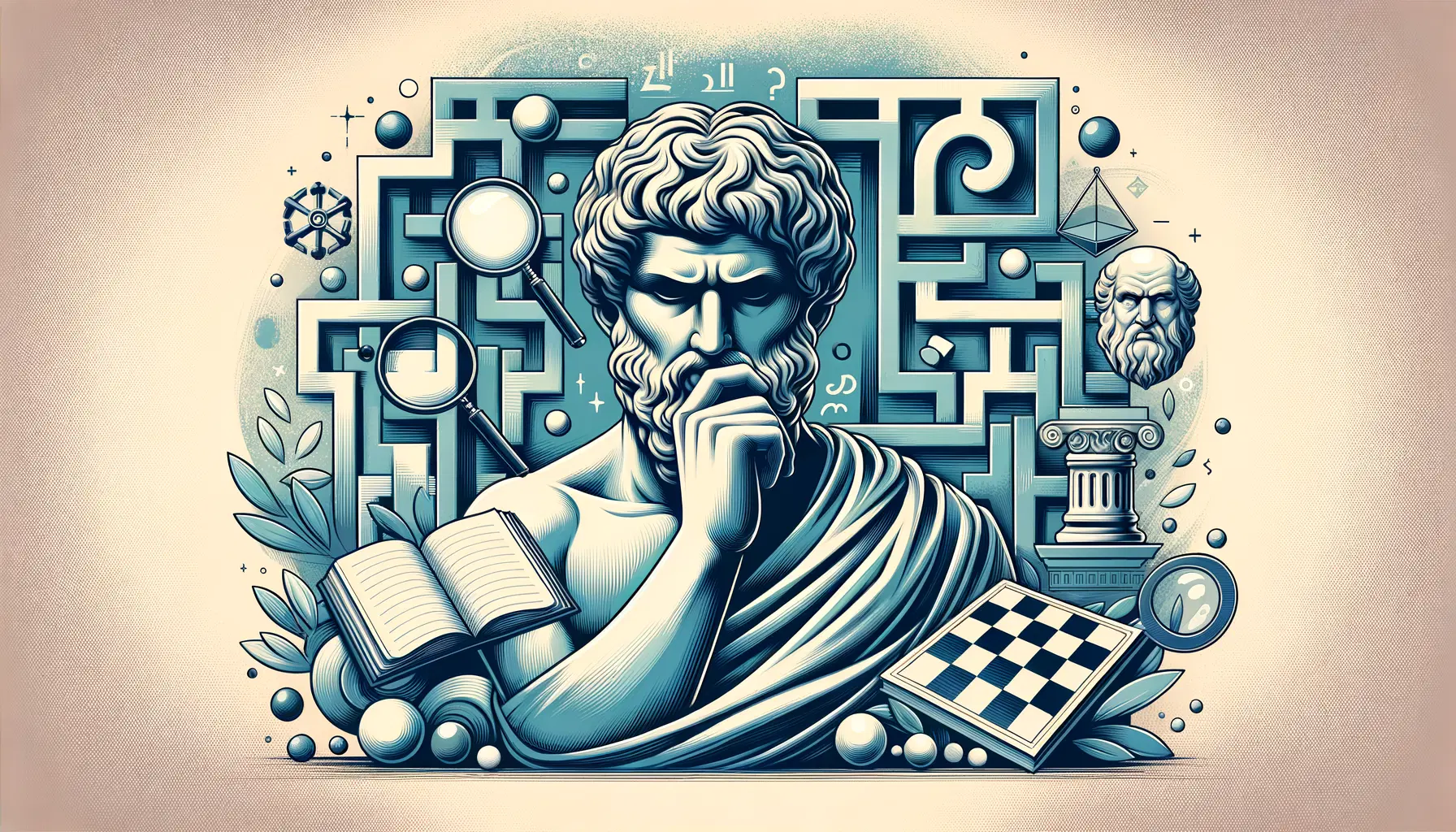
The ability to critically analyze various forms of content is an invaluable skill, particularly in an era dominated by a vast array of information sources. Critical analysis is not merely a cognitive ability; it is a tool that, when honed, enables individuals to make sense of complex issues, discern the quality of research, and contribute to discussions with well-founded insights. This blog post is crafted for those eager to enhance their analytical prowess and is particularly useful for academics, professionals, and students alike.
We will delve deep into the concept, explaining its utility across various domains and providing a practical guide to mastering this fundamental skill. Furthermore, enrollment in online certificate courses or undertaking a problem solving techniques course can serve as a catalyst in this learning journey.
Introduction to Critical Analysis
Critical analysis involves a profound and systematic examination of any text, concept, situation, or creative work. It is characterized by careful scrutiny and discernment, with emphasis on identifying and understanding underlying themes, arguments, and assumptions. This approach to thinking challenges the surface reading and personal biases, prompting a move toward a more objective and nuanced interpretation.
The importance of critical analysis cannot be overstated—it sharpens intellectual abilities and fosters a rigorous mindset that can make substantive contributions to any academic or professional field. This blog post will dissect the essence of critical analysis, explore its applications across various domains, and equip you with the tools to expertly engage in such intellectual activities.
Understanding the Concept of Critical Analysis
Critical analysis is a multifaceted skill that empowers individuals to evaluate and interpret content beyond the obvious. It allows for informed opinions and considerate responses to complex questions or problems. When employed effectively, critical analysis can unravel hidden meanings, expose fallacies, and affirm the credibility of a given argument or research finding.
Moreover, critical analysis carries immense significance across different spheres, including the critical review of literature, the appraisal of scientific research, the assessment of economic policies, and the dissection of legal arguments. It ultimately draws conclusions that are grounded in evidence and sound logic, which is paramount in disciplines that rely heavily on the integrity of analysis and argumentation.
Elements of Critical Analysis
Understanding the elements of critical analysis is akin to mastering the rules of a complex game. Various components make up this cognitive toolkit, including argument identification, evidence evaluation, and the recognition of assumptions and cognitive biases.
Each element plays a crucial role in shaping a thorough analysis. Identifying arguments, for example, requires distinguishing the core claims from secondary or supporting ones. Assessing evidence involves scrutinizing its relevance, reliability, and sufficiency. Recognizing assumptions and biases calls for a self-reflective approach to understand how one's subjective experiences might influence their understanding of the content.
Steps to Conduct a Critical Analysis
Engaging in critical analysis is not a spontaneous act but a deliberate process involving a series of methodical steps aimed at unraveling the complexity of the subject matter.
A structured approach provides clarity and ensures each aspect of the analysis is given its due consideration, enhancing the overall depth and quality of the evaluative process.
Step 1: Thorough Reading / Understanding
Before any critical engagement can take place, one must achieve a deep understanding of the subject at hand. This requires active reading and, where applicable, re-reading to grasp not just the overt message but also the nuances and subtleties of the content.
Effective comprehension is fundamental and involves annotating the text, asking probing questions, and summarizing key points. It also underscores the importance of context in interpreting the material, providing a backdrop against which the content can be assessed.
Step 2: Identify Main Arguments
Central to critical analysis is the ability to discern the main arguments from minor points or supporting evidence. Recognizing the cornerstone of an author's message relies on critical thinking and attention to detail.
A main argument typically reflects the intended purpose of the work and is what the entire content orbits. Pinpointing this argument lays the groundwork for all subsequent analysis and is often the most challenging and important step in the process.
Step 3: Evaluation of Evidence
Once the primary arguments are identified, the next step is to evaluate the evidence that supports them. It is crucial to examine whether the evidence presented is credible, relevant, and sufficient to back up the claims made.
This scrutiny involves a critical look at the methods of data collection, the sources of information, and logical deductions. It also encompasses challenging the evidence, looking for gaps or inconsistencies, and considering alternative explanations or viewpoints.
Implementing Effective Critical Analysis in Different Fields
Critical analysis is not a one-size-fits-all skill; its application varies significantly across different fields of study and professional practice. In scientific research, for example, analysis must be rooted in empirical evidence and experimental validity. In literature, on the other hand, interpretive approaches play a more significant role, considering thematic elements and narrative strategies.
In each field, different strategies and critical lenses may be employed to yield the most insightful analysis possible. Tailoring the approach to conform to the expectations and standards of the specific field is essential for valid and respected critical analysis.
Critical Analysis: Common Misconceptions and Errors
Common misconceptions about critical analysis include the belief that it always involves finding fault or that it is solely about personal opinion. In reality, it is a balanced evaluation of strengths and weaknesses, based on criteria relevant to the content being analyzed.
Frequent errors in critical analysis often stem from cognitive biases, failure to properly contextualize arguments, or the neglect of alternative perspectives. Overcoming these pitfalls requires consistent practice, awareness, and perhaps engagement in online certificate courses designed to fine-tune analytical skills.
Critical analysis is a versatile and richly rewarding intellectual pursuit. Throughout this guide, we've explored what it entails, why it's so crucial across various sectors, and how one can master the process. The art of analysis is not merely academic; it is intrinsic to professional growth and effective decision-making.
Mastery of critical analysis is not instantaneous, but through concerted effort, engagement in educational opportunities such as a problem solving techniques course, and intentional practice, proficiency is within reach. The onus is now on readers to dive into the world of critical thinking, to dissect, critique, and ultimately, to understand the intricate tapestry of arguments that populate our complex world.
Frequently Asked Questions
What are the key components of an effective critical analysis?
Understanding Critical Analysis
Critical analysis requires careful examination. It is not mere description. We aim to understand deeper meanings. We assess both structure and content.
Key Components of Effective Critical Analysis
Clarity of Purpose
Know why you analyze. Define your analysis goal. Are we critiquing, comparing, or interpreting? Purpose guides the approach.
Thorough Understanding
Master the subject matter. Read and reread the material. Note key themes and ideas. Without understanding, analysis fails.
Objective Evaluation
Remain unbiased and objective. Personal feelings must not cloud judgment. Evaluate based on evidence, not emotion.
Use of Evidence
Provide evidence for arguments. Cite specific examples. Quote texts or data when needed. Evidence strengthens analysis.
Logical Structure
Organize your thoughts clearly. Begin with an introduction. State what you will analyze. Follow with a thesis statement.
- Introduction
- Thesis
- Body paragraphs
- Conclusion
Each part supports the next. Ensure smooth transitions between sections. This keeps readers following your logic.
Critical Thinking
Apply reasoning skills. Question underlying assumptions. Consider alternate viewpoints. Reflect on implications and consequences.
Language and Expression
Use appropriate academic language. Stay formal and precise. Avoid colloquialisms and slang. Ensure sentence variety and readability.
- No passive voice
- Short sentences
- Clear terms
- Proper grammar
Analysis Synthesis
Combine various viewpoints. Integrate different pieces of evidence. Show how they relate to your argument. This demonstrates comprehensive understanding.
Conclusion
End with a strong conclusion. Recap your main points. Reinforce your thesis. Offer suggestions for further study or implications.
A critical analysis is complex. It demands attention to detail. It thrives on rigorous thought. Approach your critical analysis with these components in mind. Achieve a thoughtful, reasoned, and convincing argument.
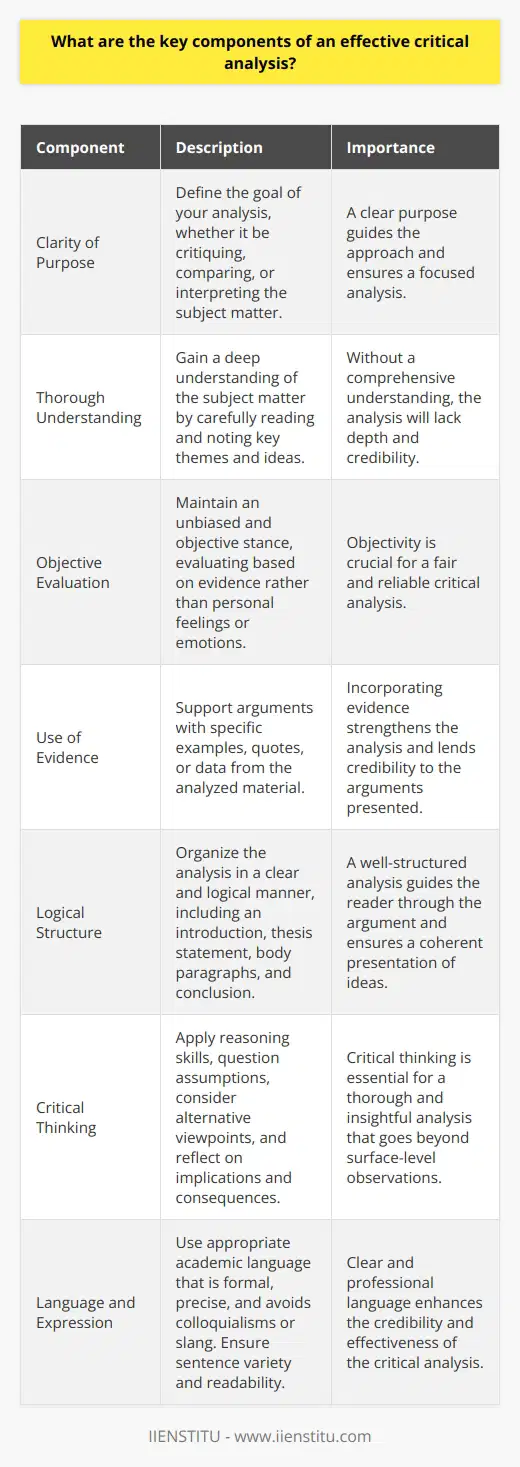
How is critical analysis different from a personal opinion or review?
Understanding Critical Analysis
Critical analysis involves rigorous evaluation. Experts dissect texts, artworks, or theories. It exceeds mere description or summary. This process demands objectivity. A clear distinction exists between it and personal opinions or reviews.
Core of Critical Analysis
The core of critical analysis is evidence-based reasoning. Analysts present arguments supported by facts. They identify underlying assumptions and logical consistency. Focus remains on structure, methodology, and content. Personal feelings stay out of this domain.
Personal Opinion and Reviews
Personal opinions reflect individual thoughts and feelings. They are inherently subjective. People express their preferences, beliefs, and perspectives. Personal opinions often fuel reviews. However, these do not demand extensive evidence or scholarship.
Reviews in Comparison
Reviews assess or evaluate an item. Be it books, services, or products. They mix facts with personal impressions. Readers get subjective assessments. These may include recommendations or criticisms. Reviews might showcase a writer's expertise. But they remain less formal than critical analyses.
Delineating Differences
Depth and Scope differentiate the two. Critical analysis delves deeper. It uncovers hidden meanings and implications. Personal opinions skim the surface. They resonate with individual experiences.
Objectivity over Subjectivity. Critical analysis aims for impartiality. Personal opinions embrace subjectivity. They thrive on emotional responses.
Structure and Presentation Matter. Critical analysis follows a scholarly format. It articulates theses with supporting arguments. Personal opinions lack this tight structure. They may wander through various points.
Evidence-Based versus Anecdotal. Facts and references support critical analysis. Personal opinions often rely on anecdotes. They need not cite sources or evidence.
Concluding Thoughts
Critical analysis is methodical and fact-oriented. It seeks to understand beyond initial impressions. In contrast, personal opinions and reviews lean on subjective experiences. Both have their place. Each serves a different purpose. Understanding this distinction is crucial. It influences how readers interpret and value the content presented.
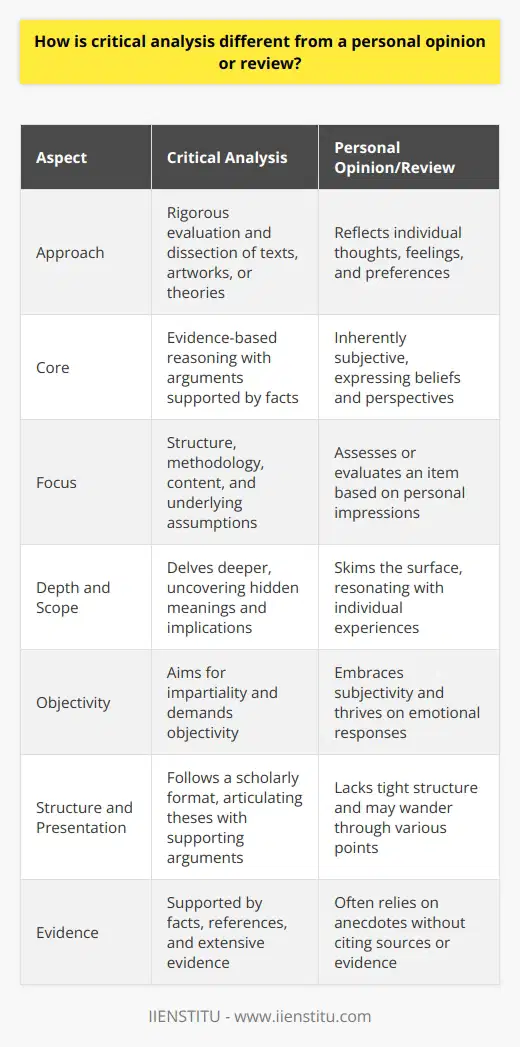
What strategies can one utilize to improve their skill in critical analysis?
Essential Strategies for Developing Critical Analysis Skills
Understand the Basics
To start, grasp essential concepts. Critical analysis requires critical thinking. You must dissect and evaluate arguments. Identify assumptions and evidence. Determine the argument's validity. This fosters a skeptic's mindset.
Read Actively
Active reading is crucial. Engage with the text. Ask critical questions. Who wrote this? Why? What is the argument? Seek evidence. Note biases.
Keep an Academic Journal
Journaling aids reflection. It hones analytical skills. Write regularly. Respond to readings. Analyze your reactions and thoughts. Reflect on different perspectives.
Practice Writing Critiques
Writing critiques helps. Practice is necessary. Review books, articles, or art. Argue with evidence. Provide constructive feedback. This sharpens analytical capabilities.
Study Logic and Reasoning
Learn logic. Know fallacies. Understand reasoning. These are critical analysis pillars. Logical fallacies mislead. Recognize them in arguments.
Discuss with Peers
Engage in discussions. Share ideas with others. Listen to opposite views. Challenge and be challenged. It broadens perspectives. It sharpens analysis.
Apply Theories
Theories are tools. Apply them to diverse texts. Theories provide analytical lenses. They reveal underlying meanings.
Take Critical Analysis Courses
Courses offer structured learning. Explore them online or in college. Experts teach valuable skills. You practice with feedback.
Analyze Various Media Formats
Don't just read. Analyze films, music, art. Different media require different analyses. This diversifies your skills.
Use Technology
Leverage technology. Digital tools can assist. Use them to organize thoughts. Analyze data. They aid in creating coherent arguments.
Evaluation is Key
Always evaluate your work. Reflect on your analysis. Learn from mistakes. Strive to improve. Continuous evaluation leads to mastery.
Enhance Your Analytical Mindset
Stay Curious
Curiosity breeds insight. Ask questions. Seek knowledge. Always want to learn more. It drives better analysis.
Be Open-Minded
Open-mindedness is vital. Resist biases. Consider all viewpoints. Weigh them equally. This fosters fair analysis.
Develop Patience
Critical analysis takes time. Don't rush. Evaluate thoroughly. Patience yields deeper understanding.
Stay Informed
Be knowledgeable. Read widely. Stay up-to-date with news. Informed opinions are powerful. They are well-grounded.
Cultivate Critical Acuity
Sharpen your mind. Puzzles and games can help. They encourage problem-solving. They stimulate intellectual growth.
Final Thoughts
Improving in critical analysis is an ongoing process. It requires commitment. Follow these strategies. With diligence, your analytical skills will grow.
